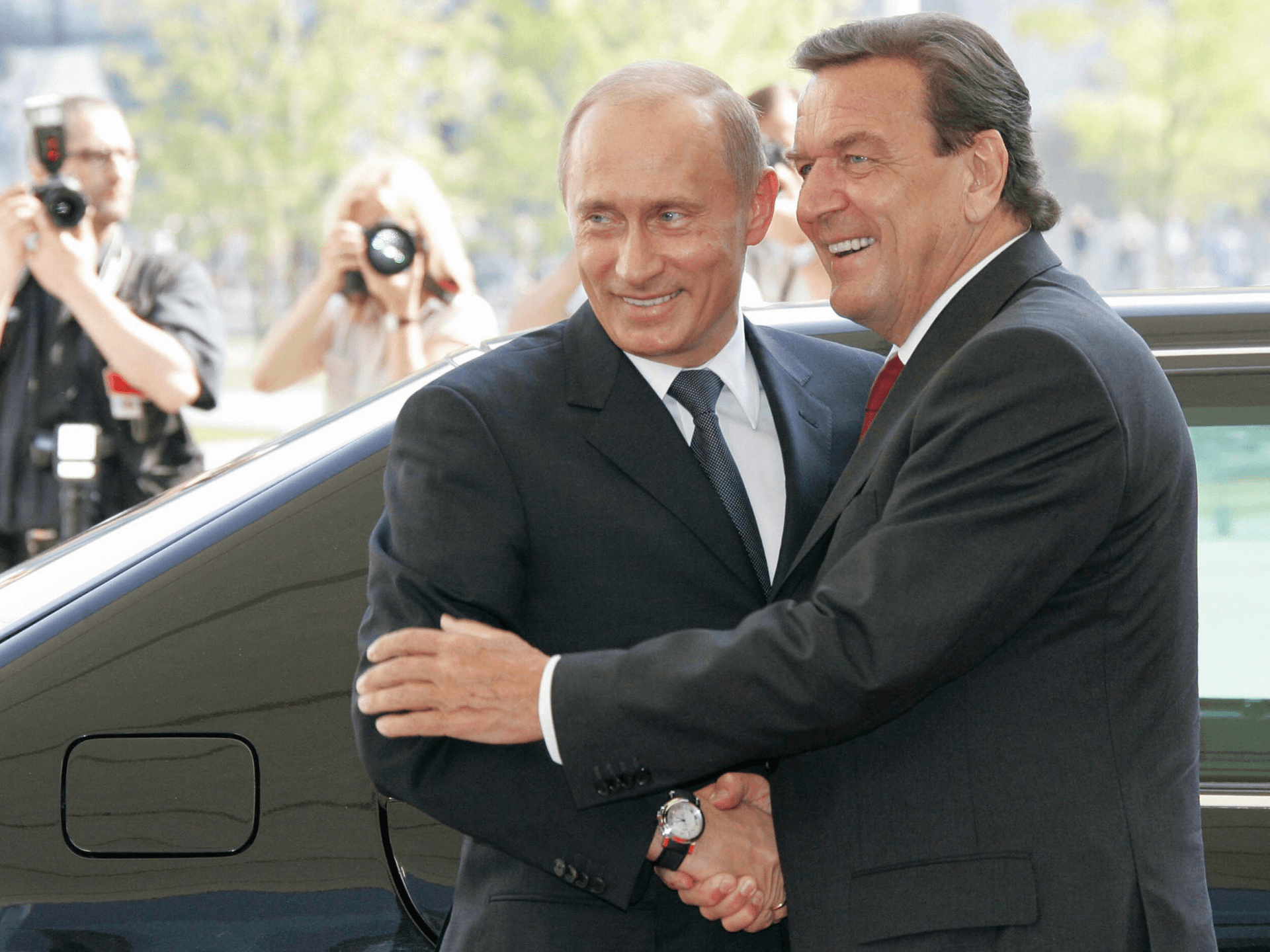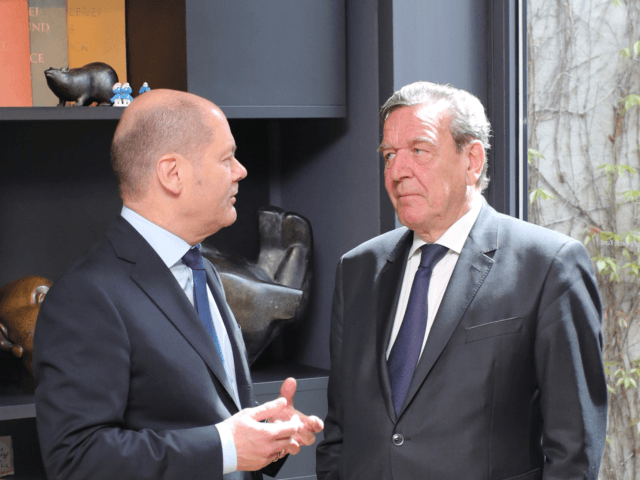Former German chancellor Gerhard Schröder should resign from his board positions on several state-owned Russian energy firms, current chancellor Olaf Scholz has said.
In the latest of several actions seemingly vindicating criticisms previously levelled at Germany by former President Donald Trump, Chancellor Olaf Scholz has called on his controversial predecessor Gerhard Schröder to step down from his lucrative roles on state-owned energy companies in Russia, including the Nord Stream 1 and 2 pipelines.
While Schröder’s dealings with Russia and his close relationship with Vladimir Putin have long been criticised at home and abroad, Chancellor Scholz has, amid Russia’s war in Ukraine, finally come around to calling for him to resign his Russian sinecures.
“I find that it is not correct for Gerhard Schröder to hold these offices. And I think it would be correct for him to give them up.” Scholz said in comments reported by public broadcaster Deutsche Welle.
The Chancellor went on to argue that while Schröder is currently a private citizen, his role as a former head of state makes his business dealings more than merely a private affair, saying: “This obligation does not end when one no longer holds the office, but it also continues.”
Scholz added that he hopes confidants of the former chancellor can “convince him to reconsider his decisions from the past.”

Berlin, GERMANY: German Chancellor Gerhard Schroeder (R) greets Russian President Vladimir Putin on 08 September 2005 at the Chancellory in Berlin. Putin was to oversee the signing of an agreement to build a multibillion-dollar pipeline, linking Russia with western Europe, just 10 days before the 18 September 2005 German general elections. (VLADIMIR RODIONOV/AFP via Getty Images)
Currently, Schröder, 77, holds several positions with Russian firms, including both the Nord Stream 1 and Nord Stream 2 pipelines, after he left office in 2005. The first pipelines bypass Ukraine along the bottom of the Baltic Sea, with first operational and the second completed but still awaiting regulatory approval in Germany — currently blocked by Chancellor Scholz due to the Ukraine situation.
Schröder, who initially signed off on Nord Stream 2, has was also nominated in February to serve on the board of Gazprom, Russia’s main state-owned gas company, leading to a bevvy of criticism across the political spectrum in Germany.
The former chancellor’s Kremlin connections were a frequent subject of ire from former U.S. President Donald Trump, who attacked Germany for being dependent on Russian gas while demanding American military protection from the ostensible threat of Russia.
“The former Chancellor of Germany is the head of the pipeline company that’s supplying the gas… Germany is totally controlled by Russia,” Trump said of Schröder at a 2018 NATO summit in Brussels.
Trump Vindicated: Nord Stream 2 Pipeline Deal Was Merkel’s ‘Biggest Mistake’, Says Former EU Chief https://t.co/fu2NiaT1i1
— Breitbart London (@BreitbartLondon) November 29, 2021
In recent weeks, the current leader of Germany, who succeeded Angela Merkel in December, has not only followed Trump’s lead on blocking Nord Stream 2 and targetting Schröder but also finally committed to meeting the NATO spending requirement of 2 per cent of GDP.
While Trump was castigated in the mainstream media as somehow attempting to dismantle the NATO alliance, his main critique of the institution was that many countries, notably Germany, failed to meet their defence spending requirements. Indeed, NATO secretary-general Jens Stoltenberg previously credited Trump with securing more than $100 billion in additional funding for the alliance.
Announcing last week that Germany would actually live up to its NATO obligations, Scholz committed to spending an additional €100 billion this year towards funding the military. The Chancellor also lifted the longstanding prohibition against German weapons being sent to conflict zones, which previously blocked countries such as Estonia from shipping weapons to Ukraine.
Commenting on the sudden change of heart from Germany, which only paid 1.53 per cent of GDP towards defence last year, Trump said: “I hope everyone is able to remember that it was me, as President of the United States, that got delinquent NATO members to start paying their dues, which amounted to hundreds of billions of dollars,” adding: “There would be no NATO if I didn’t act strongly and swiftly.”
The former president continued: “Also, it was me that got Ukraine the very effective anti-tank busters (Javelins) when the previous Administration was sending blankets. Let History so note!”
Trump Vindicated: Germany to FINALLY Pay NATO Spending Requirementshttps://t.co/qvavqZm45k
— Breitbart London (@BreitbartLondon) February 28, 2022
Follow Kurt Zindulka on Twitter here @KurtZindulka

COMMENTS
Please let us know if you're having issues with commenting.